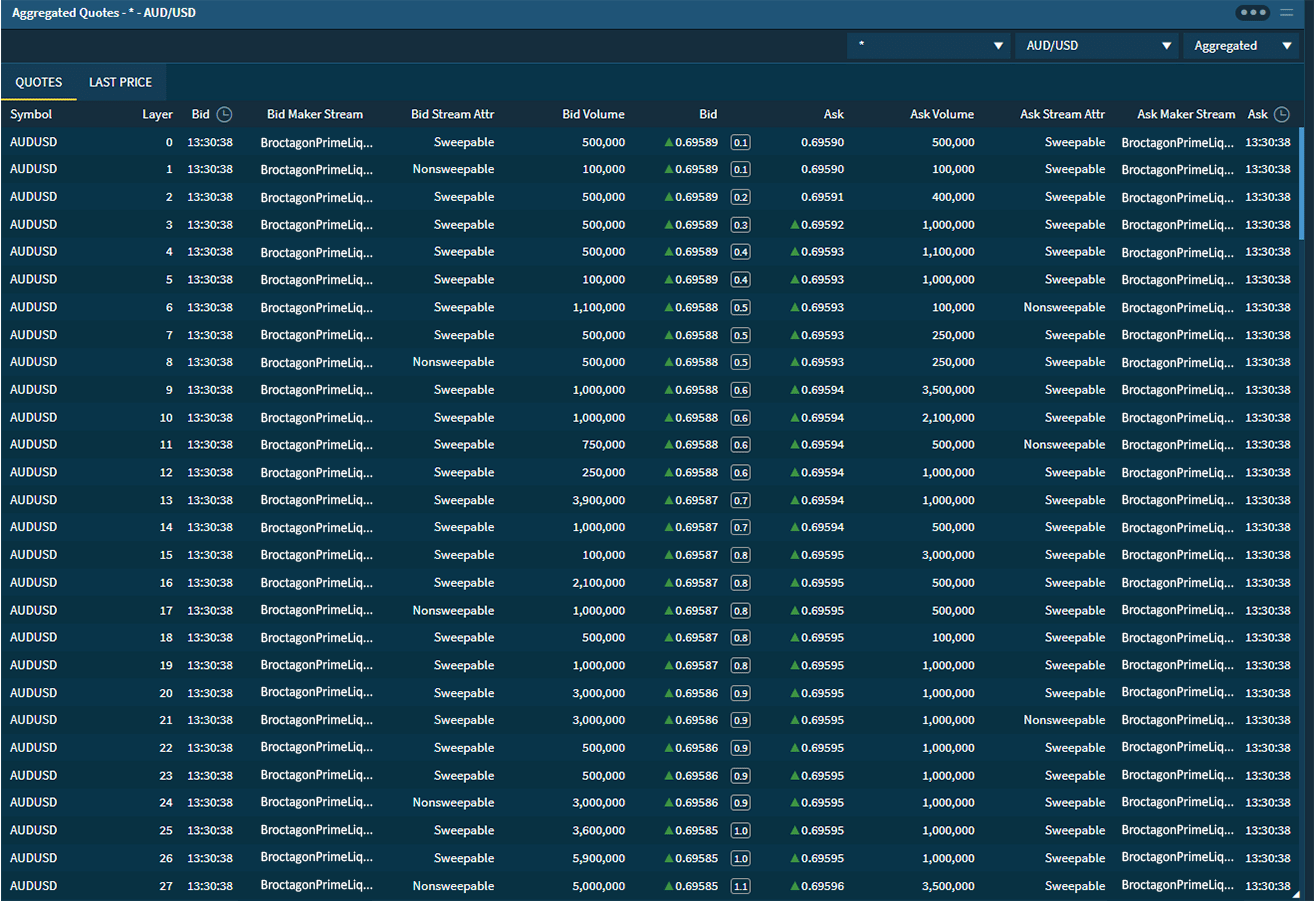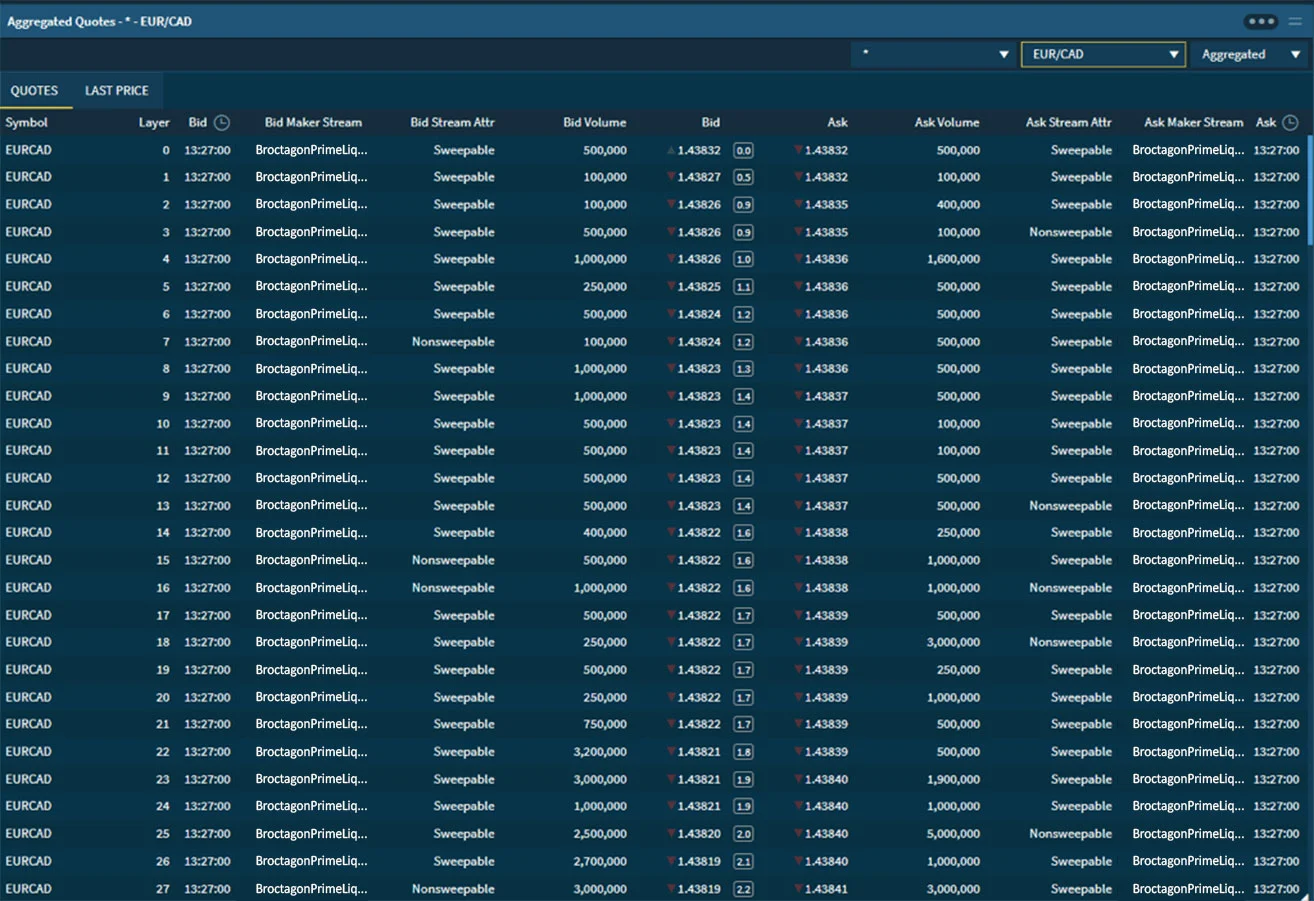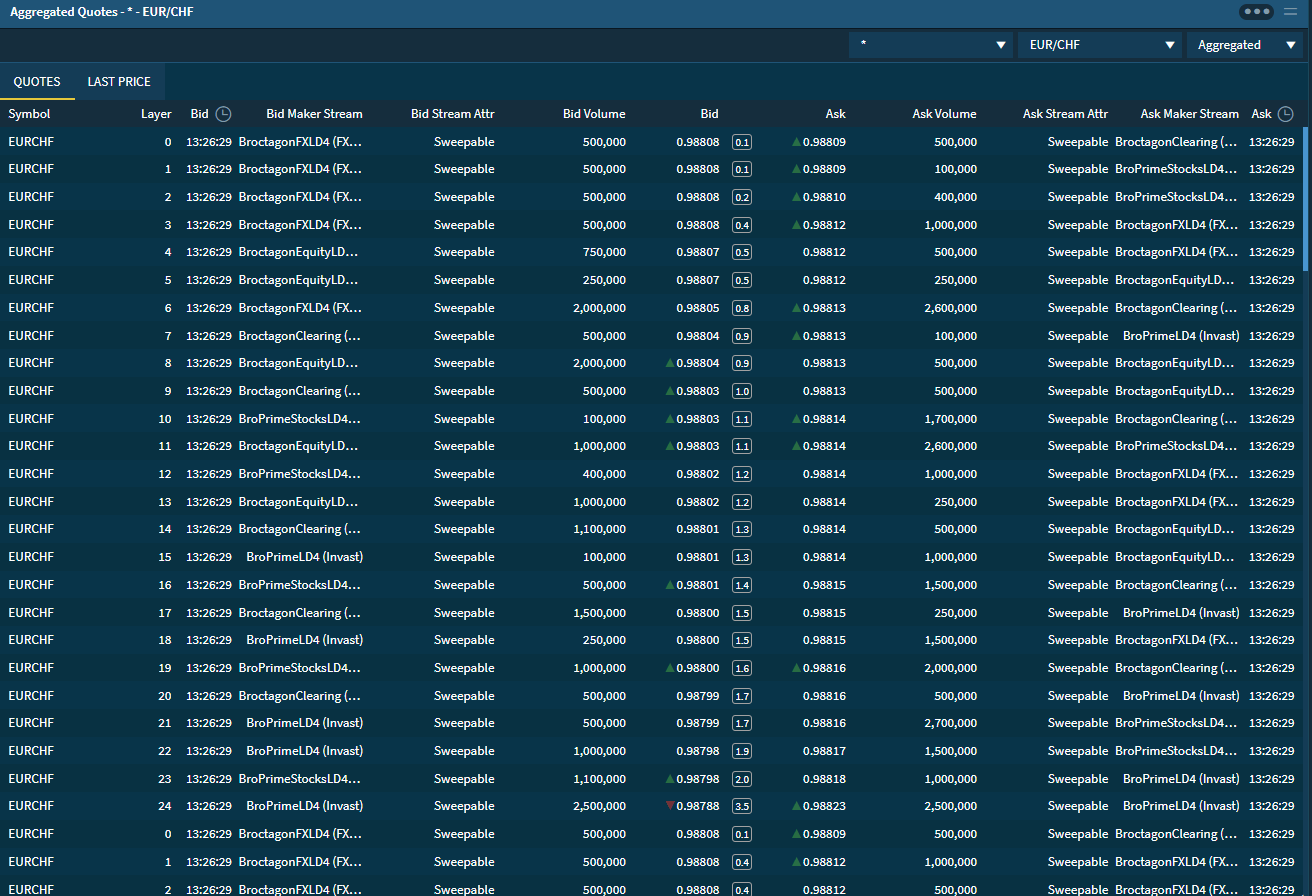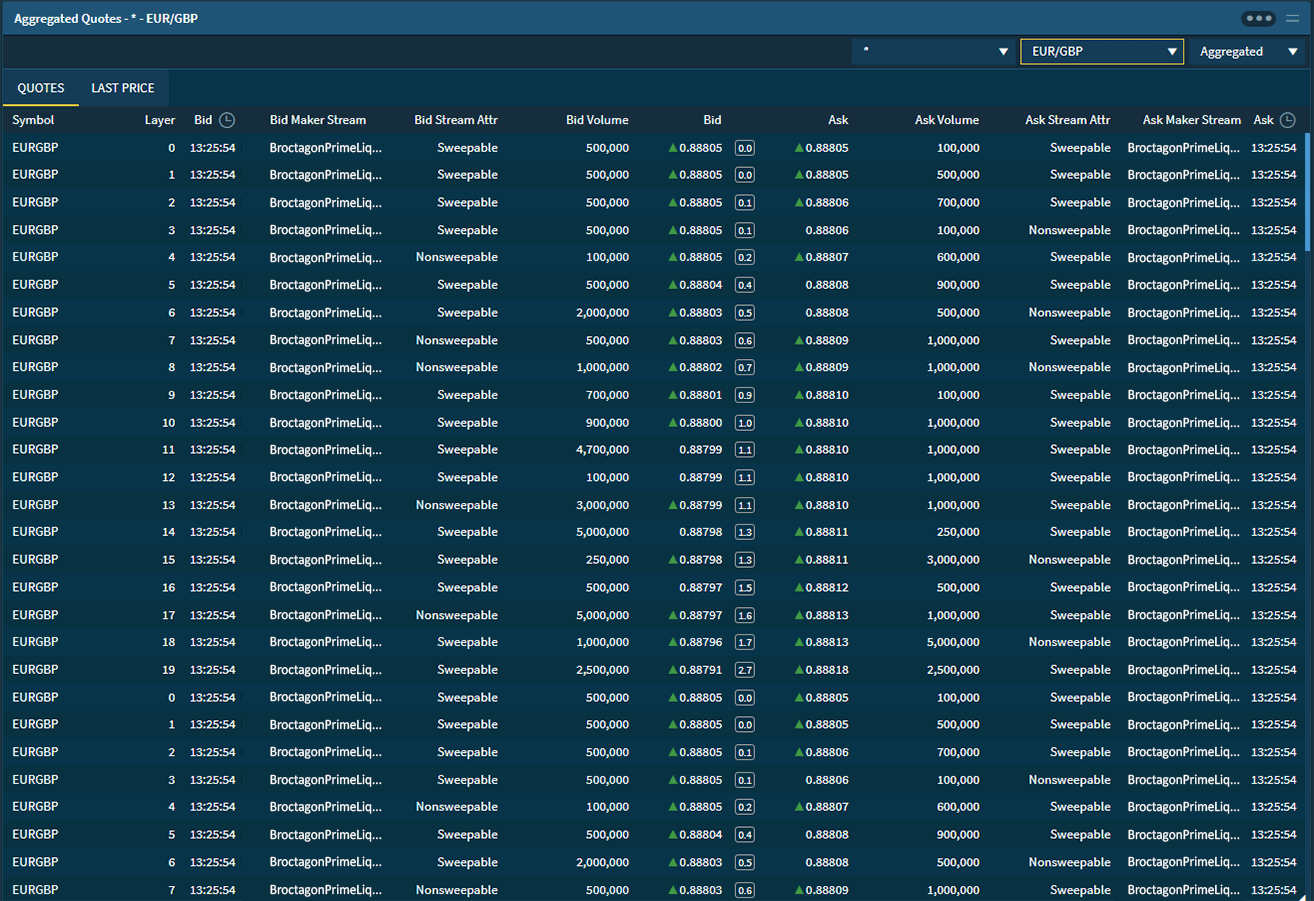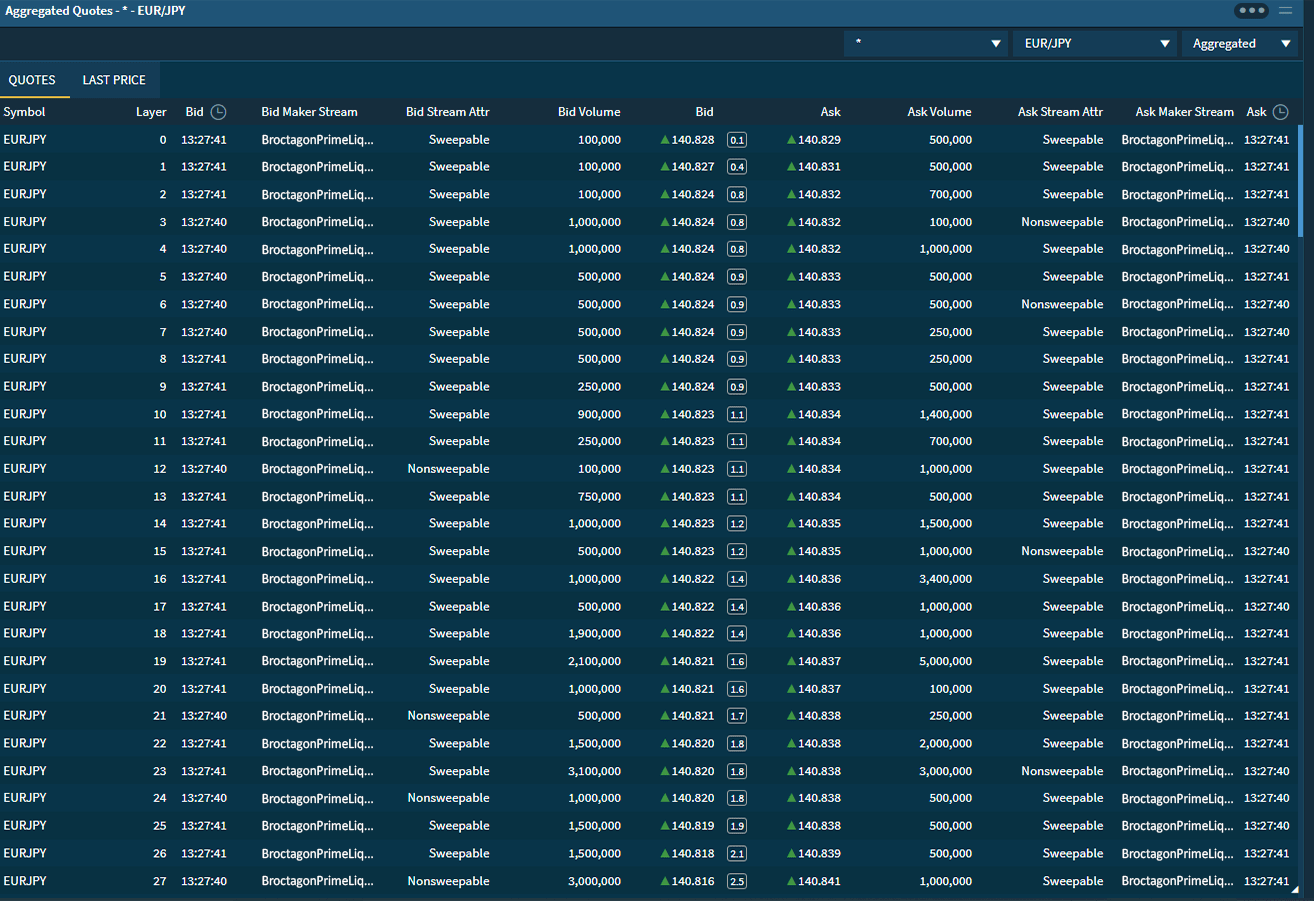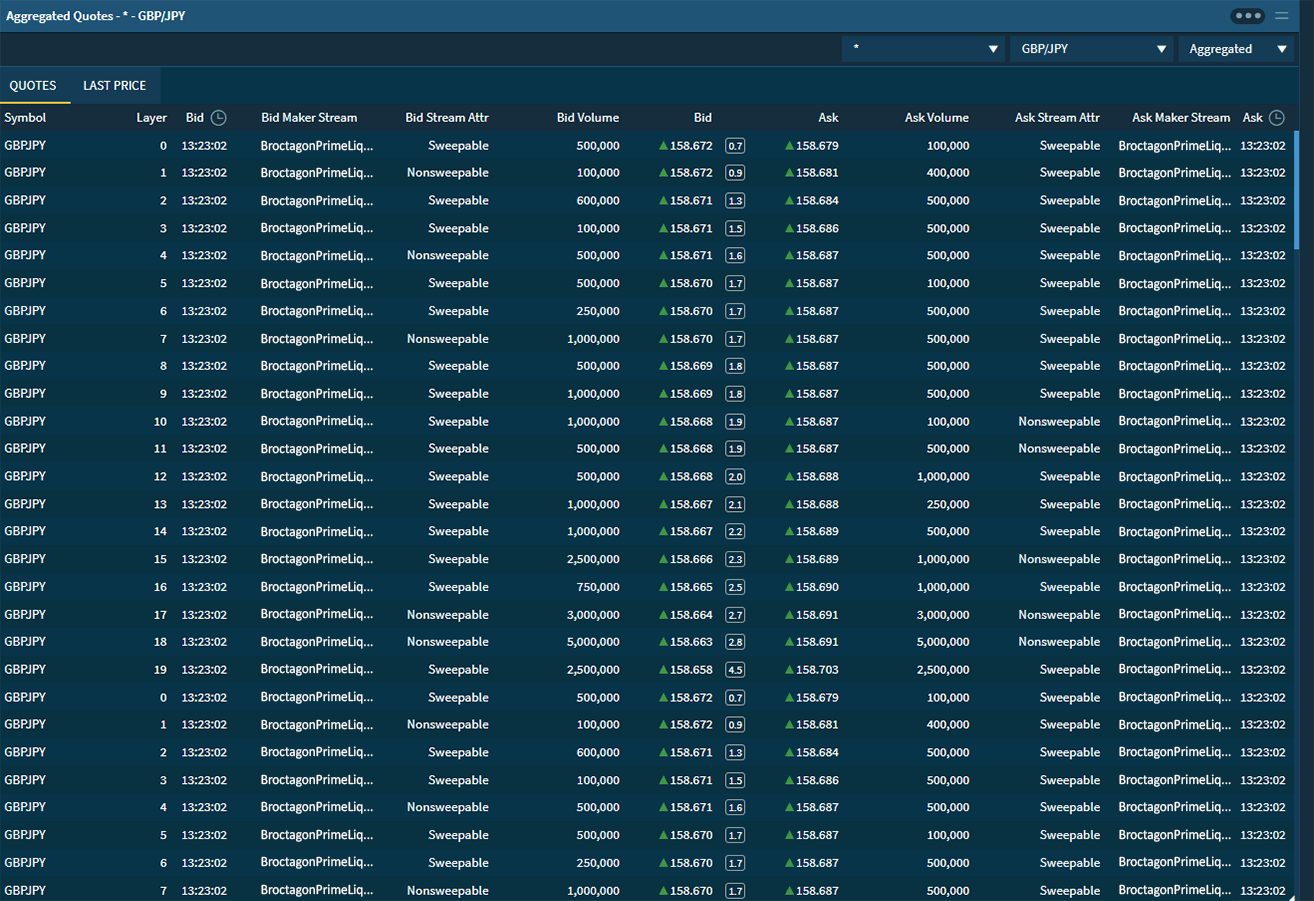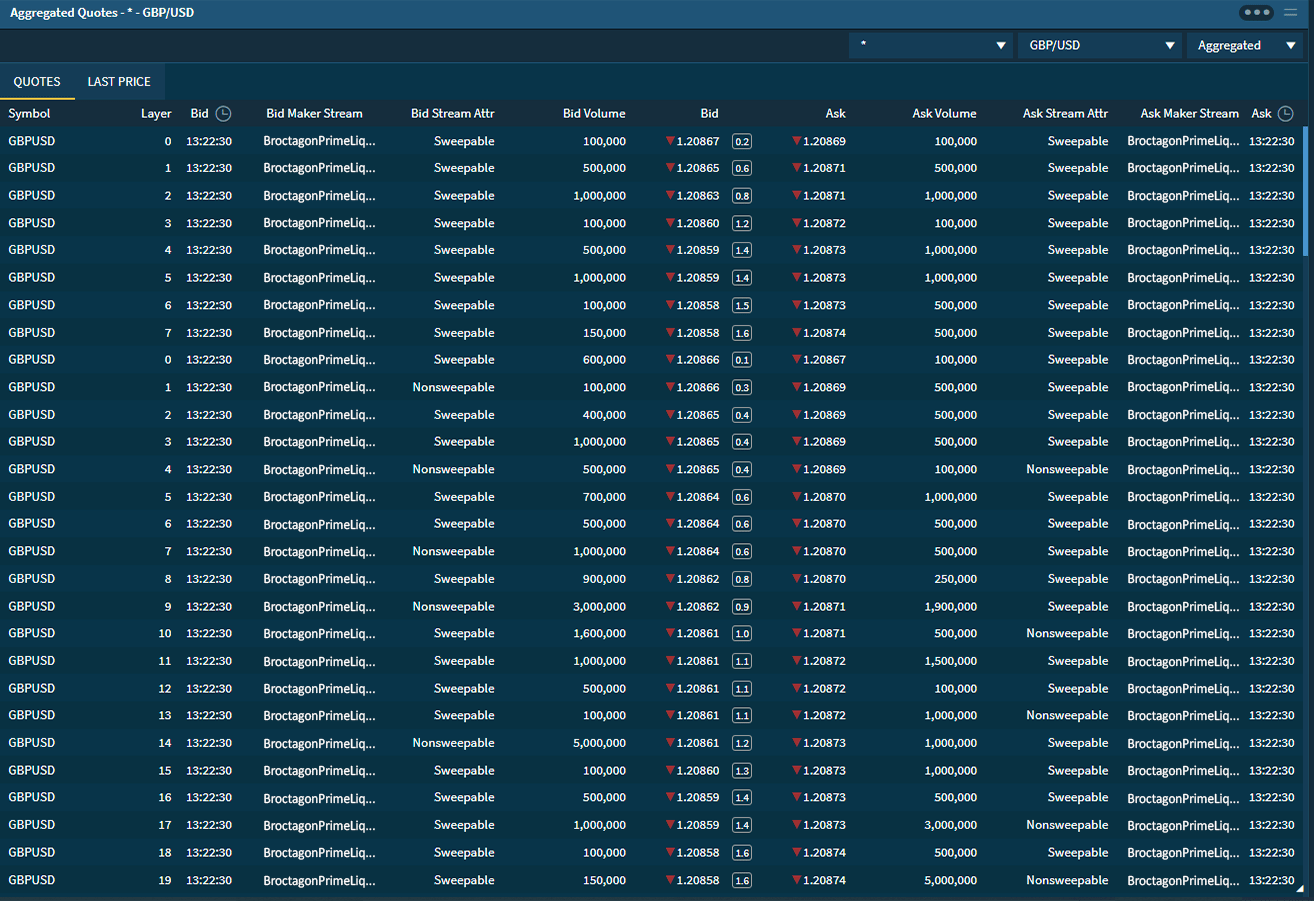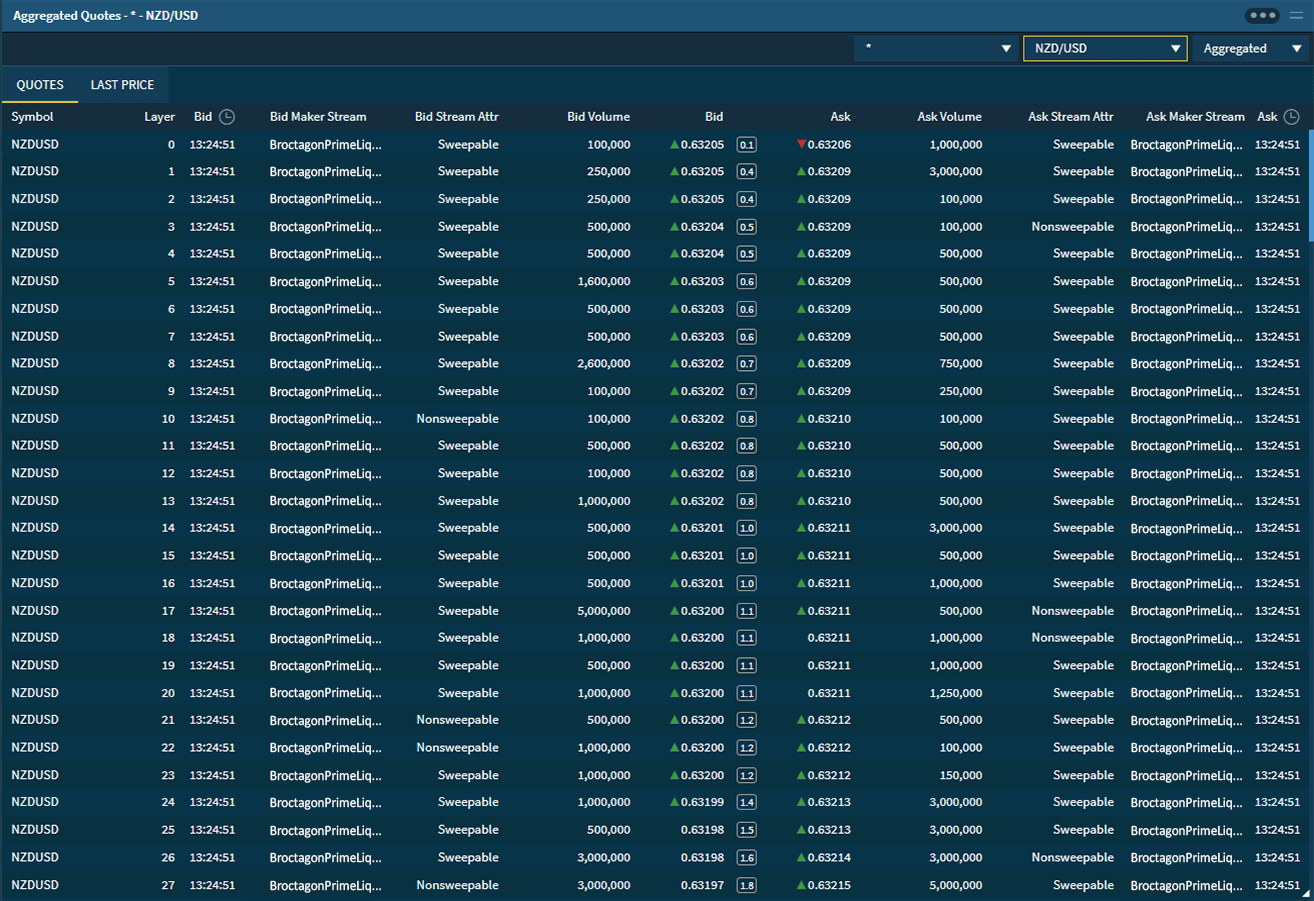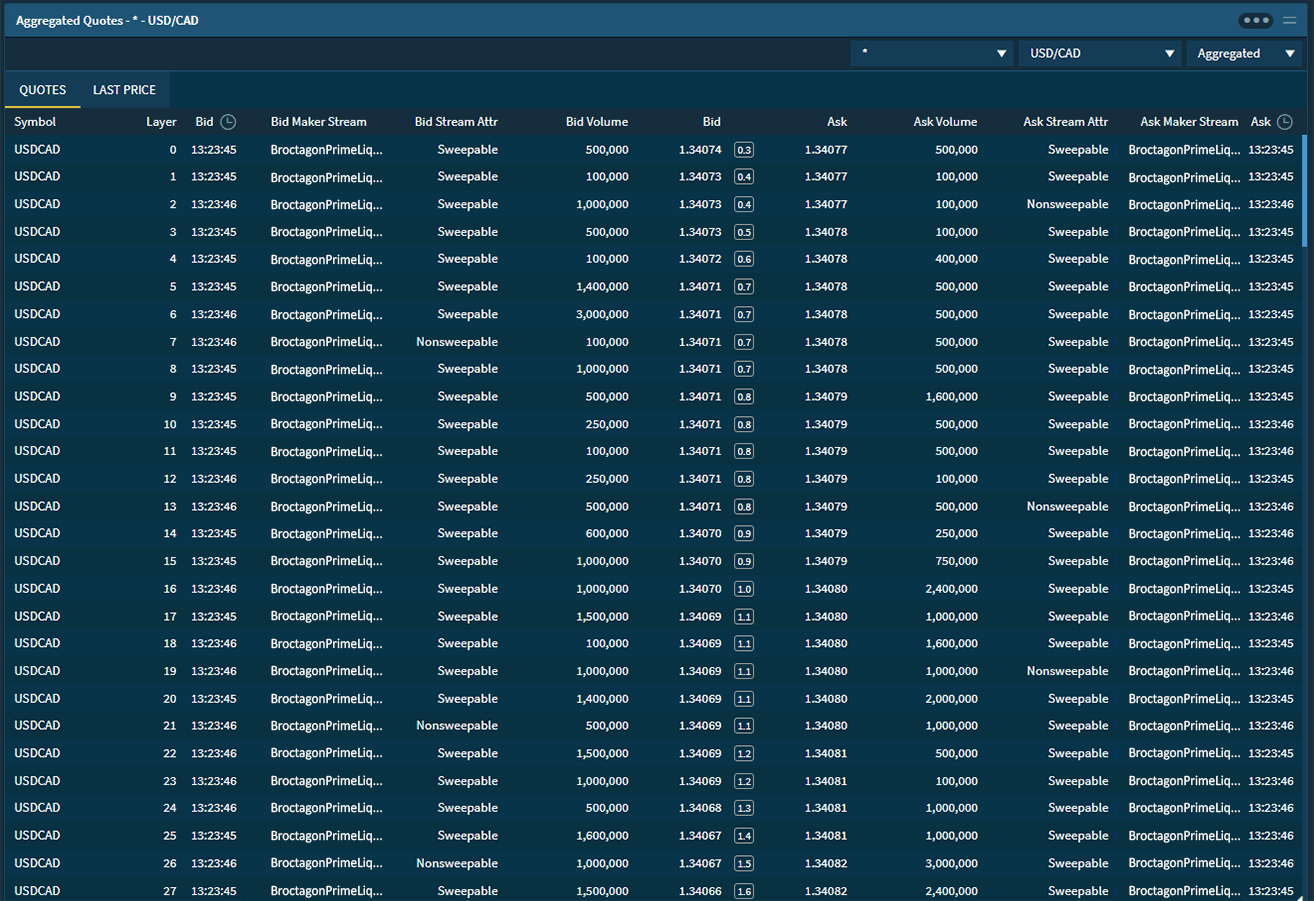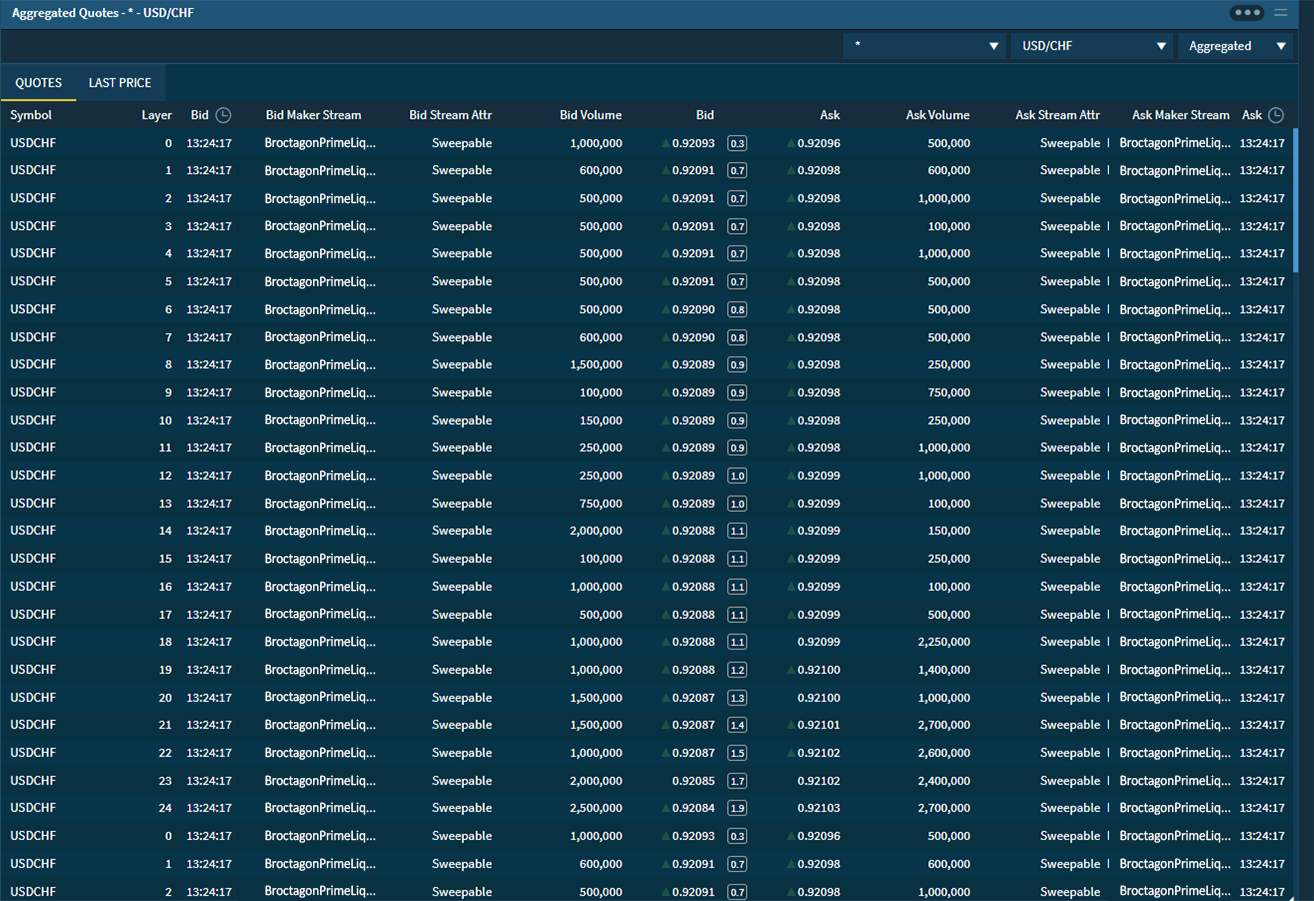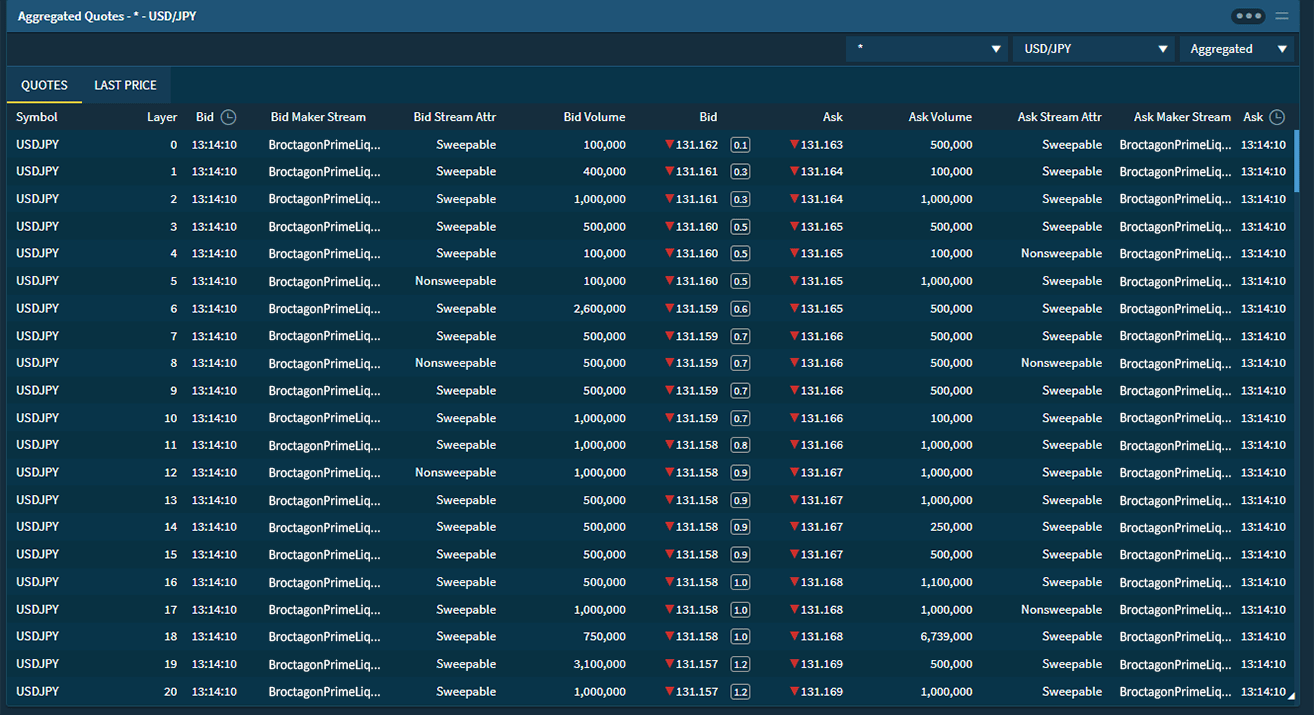Glossary: 30 Essential Prop Trading Terms
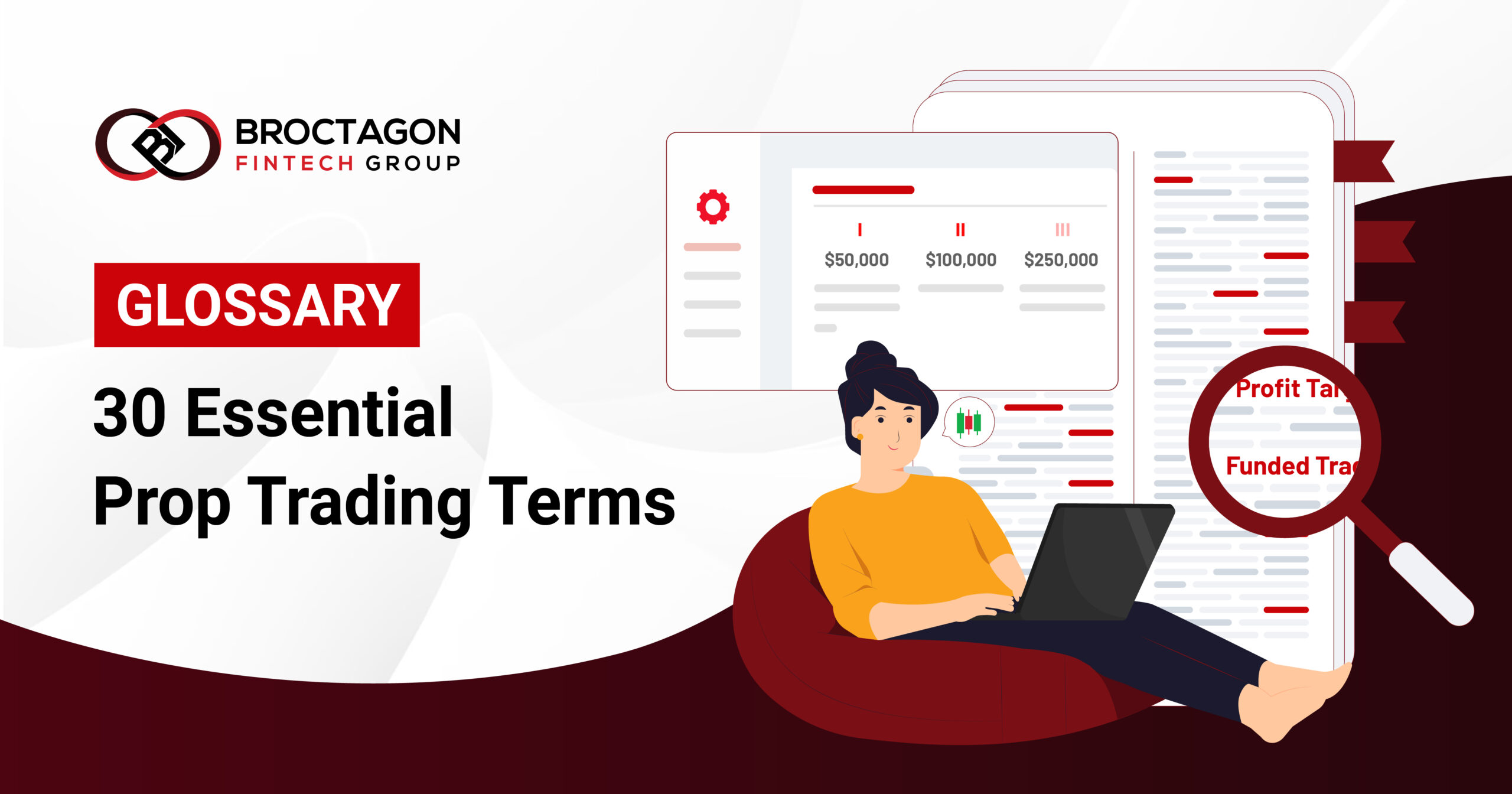
Navigate the world of Proprietary Trading (Prop Trading) with our essential glossary of must-know terms! Whether you are a trader exploring this innovative new concept or Broker looking to expand your key offerings, this guide will help you chart a course to success by covering some of Prop Trading’s most important terms.
1. Prop Firm:
A prop firm, also known as a proprietary trading firm, is a financial institution or company that uses its own capital for trading financial instruments. These firms often employ skilled traders with specific strategies and objectives, and profits generated from proprietary trading are typically shared between the firm and individual traders.
2. Proprietary Capital:
This refers to the funds deployed for proprietary trading by a financial institution or company. It represents the firm’s own capital utilized to trade various financial instruments with the primary objective of profit generation.
4. Funded Trader:
A trader who has met the criteria of a proprietary trading challenge and is provided with capital to trade.
5. Registration Fee:
The fee traders must pay to participate in the challenge. This participation fee usually varies based on the desired funded account size, with larger funds incurring higher fees. These fees are typically reimbursed or offset by the profits earned during the final live trading stage.
6. Demo Account:
A virtual environment allowing traders to practice without using real money. It provides access to live market data and tools for skill development and strategy testing.
7. Live Account:
A trading account involving actual capital and real financial risk. It allows traders to participate actively in the live forex market.
8. Evaluation Phase:
The first stage of a prop trading challenge where traders trade with virtual capital on demo accounts to meet set criteria. The evaluation phase may consist of multiple stages based on the discretion of the prop firm.
9. Verification Phase:
The final stage of a prop trading challenge where traders demonstrate their ability to replicate their performance in a live or demo trading environment, based on the discretion of the prop firm. Traders who successfully pass the verification phase will move on to trading a live account funded by the prop firm.
10. Trading Rules:
Guidelines and conditions established by the proprietary trading firm that traders must follow during the challenge. This is to ensure consistency in performance and allow for proper evaluation before gaining access to prop capital.
11. Trading Period:
A specified timeframe within which traders must achieve the profit target and adhere to challenge rules.
12. Trading Days:
The minimum number of days that traders are required to open new trades, within the trading period. This rule aims to promote a consistent trading strategy, discouraging attempts to achieve profit targets solely through a single, exceptionally profitable trade that may have a low likelihood of recurrence.
13. Profit Target:
A predefined goal that traders must reach within the trading period.
14. Trading Rules:
Guidelines and conditions established by the proprietary trading firm that traders must follow during the challenge.
15. Maximum Drawdown Limit:
The maximum allowable account loss or equity decrease during the challenge. Exceeding this amount will result in challenge failure.
16. Maximum Daily Loss:
The most significant allowable daily trading loss, as per challenge rules. This can be a fixed number or a percentage of the equity at the start of the day. Exceeding this amount will result in challenge failure.
17. Trade Size:
The number of units or lots traded in a single position.
18. Risk-Free Period:
A specific time frame during which losses do not affect the trader’s account.
19. Free Repeat:
An opportunity given to traders to retry a specific stage without extra fees. This usually occurs when all criteria are fulfilled at the end of the trading period except the profit target.
20. Scaling Plan:
A strategy outlining how traders plan to achieve profit targets and manage risk.
21. Account Evaluation:
The assessment of a trader’s trading results and compliance with challenge rules before granting access to a funded account. This is typically a manual review process after the trader completes the verification phase.
22. Funded Account Size:
The initial capital provided to traders upon successfully passing the challenge.
23. Profit Share:
The division of trading profits between the trader and the proprietary trading firm, often following a pre-established split ratio.
24. Funding Agreement:
The formal agreement outlining the terms and conditions of the funded trading account.
25. Funding Period:
The duration for which traders have access to the funded account.
26. Forex Liquidity Provider:
A Forex (FX) Liquidity Provider (LP) is a financial entity that provides bid and ask prices for diverse currency pairs. Typically in possession of a large pool of assets, the LP’s main role is fill client’s orders by both buying and selling assets. Prop firms typically trade with regulated LPs in reputable jurisdictions.
27. Scalping:
Scalping is a trading strategy that entails rapid, frequent trades aiming to capitalize on minor price fluctuations within a short timeframe, often spanning seconds to minutes.These strategies are commonly categorized as higher-risk and may not align with prop trading guidelines, potentially leading to disqualification from trading challenges.
28. Anti-Expert Advisor (EA):
An automated trading software that utilizes predetermined strategies and technical indicators to autonomously make trading decisions and execute trades on behalf of traders.EAs may not align with prop trading guidelines as they lack dynamic human assessment.
29. News Trading:
Forex news trading is a strategy that seeks to profit from price fluctuations before or immediately after economic news and key data releases. It bears higher risk due to the volatile nature of market reactions to news events.As such, news trading permissibility is subject to the policies of prop trading firms.
30. Hedging:
If hedging is allowed, traders are permitted to open and hold multiple positions in opposite directions (buy and sell) for the same currency pair simultaneously.Inadequate hedging may result in higher risks thus it is important to check if the prop firm allows this strategy or if there are additional associated conditions.
Prop Firm Turnkey Setup
Setting up a Prop Firm can be simple with Broctagon’s Fully Managed White Label solutions. Focus your efforts on marketing your brand while entrusting the technological backbone of your prop venture in expert hands. With our end-to-end solution suite, your Prop Firm can be up and running within a week.
If you are a FX Broker looking to add Prop Trading Challenges to your offering, our CRM with integrated Prop Challenge Module will get you started in 2 days.
Learn more about our prop trading solutions here.
About Broctagon Fintech Group
Broctagon Fintech Group is a leading multi-asset liquidity and FX technology provider with over 15 years of global expertise. We empower forex brokers with performance-driven, bespoke solutions — anchored by our flagship AXIS FX CRM, institutional-grade liquidity, and prop-trading solutions. Trusted by 350+ clients in 50+ countries, we deliver the technology that keeps brokerages ahead of the curve.


